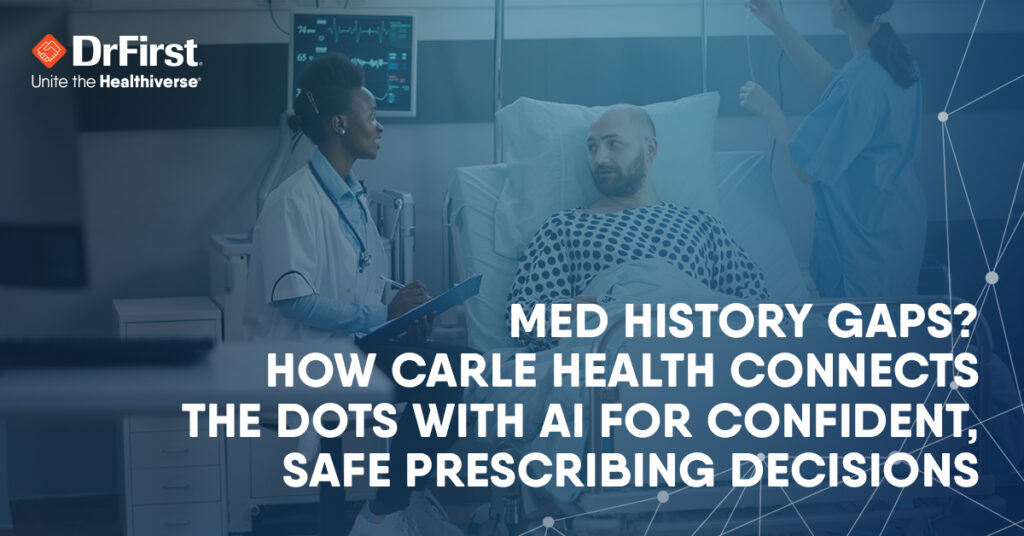DrFirst
Med History Gaps? How Carle Health Connects the Dots With AI for Confident, Safe Prescribing Decisions
Gathering a comprehensive medication history is a critical step for ensuring patient safety when prescribing medications—especially when up to 67% of patients have errors on their medication lists upon hospital admission. The inaccuracies often result from communication gaps. For example, a patient may forget to mention a medication at intake. Alternatively, a patient’s medical record may be missing information due to a lack of data sharing between the provider’s electronic health record (EHR) system and the hospital’s system. Such gaps can lead to serious risks, including adverse drug events that harm patients and drive up hospital readmissions.
Recognizing the need to obtain the best possible medication history (BPMH) for all patients at admission, Carle Health wanted to optimize medication management to avoid unintentional medication discrepancies at transitions of care. The hospital system took steps to improve medication safety and accuracy across its eight-hospital network in Illinois. The steps Carle Health took—and the results achieved—reveal the impact of tackling medication history head-on. (And earned Carle Health a Silver in the DrFirst 2024 Healthiverse® Heroes Awards.)
Medication Reconciliation Under Pressure: Pandemic Spurs Search for a Solution
The hospital system’s pharmacy staff was already spending quite a bit of time making phone calls to pharmacies to reconcile patients’ medication history. Then the COVID-19 pandemic struck, making it even more difficult to fill in the blanks.
Jason Tipton, PharmD, and Inpatient Pharmacy Operations Supervisor at the Carle Foundation Hospital in Urbana, Illinois, explained to Healthcare IT News, “During the pandemic, that became a problem because pharmacies were overwhelmed by staffing shortages and closures. Our staff could be on hold for up to an hour for a conversation that lasted less than a minute, which was an inefficient way to make sure a patient’s medication history was up to date.”
Carle Health also used a standard industry feed for medication history, but this approach fell short too. The feed lacked information from local and independent pharmacies and didn’t consistently capture detailed prescription instructions (sigs). As a result, data gaps and process shortcomings persisted.
A Prescription for Efficiency: AI-Powered Medication History
In 2021, Carle Health optimized its medication reconciliation process by integrating the DrFirst medication history solution directly into its Epic EHR.
This collaboration has simplified workflows, improved patient safety, and reduced manual data entry, all while making more complete medication data available to clinicians at the point of care.
Carle Health has broken free from time-consuming phone calls to pharmacies to confirm patient prescriptions. Now, with AI-powered medication data integrated into the EHR, hospital clinicians, and pharmacy staff have a real-time view of comprehensive medication history, including prescription fill data and sigs, for the majority of patients. This ensures clinicians can safely prescribe new medications based on a fully reconciled medication list.
Dr. Tipton shared with Patient Safety & Quality Healthcare (PSQH) that this approach has “… not only reduced medication errors, but identified barriers that keep patients from filling out their prescriptions or following doctor’s orders.”
Effective Medication Management: Benefits Beyond Time-Savings
Since going live with the DrFirst medication history solution, Carle Health has achieved significant results. Clinical-grade AI translates sigs into standard terminology and pre-populates that data in the EHR. Not only does this save hours of manual data entry; it also helps prevent transcription errors that could lead to adverse drug events.
The benefits have added up to a 16% efficiency boost, including:
- More than 1,200 hours saved annually
- Complete admission medication history captured for 93% of high-risk patients
Final oversight remains in the hands of clinicians, not AI. Colin Banas, M.D. and Chief Medical Officer at DrFirst, explains in a Specialty Pharmacy Continuum article featuring Carle Health’s new approach, “You’re never locked into what the AI has suggested, and no prescription details are committed to the EHR until a pharmacist or other provider has reviewed them and signed off.”
Providing Carle Health’s clinicians with accurate medication history at the point of care has contributed to better patient outcomes. The transitional care pharmacy program, in particular, relies on this technology to support high-risk patients during admission and discharge.
Moving Forward: A Smoother Path From Prescribing to Adherence
Carle Health’s commitment to innovation and patient safety is paving the way for better health outcomes, driven by advanced technology. Their successful partnership with DrFirst is a testament to the power of clinical-grade AI and seamless data sharing in reducing clinician workloads, improving prescribing accuracy, and delivering safer, faster care.
Are you ready to do the same? Connect with us today.


















